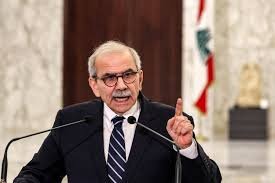Why and who is obstructing formation of Lebanese government?

BEIRUT — Obviously, Lebanese Prime Minister-designate Nawaf Salam is under intense pressure from those who are supposed to be his “allies” in an attempt to amend the course of his ministerial picks. Otherwise, Salam will be forced to apologize or impose a formation that will fail to gain the confidence of the parliament.
These same political groups that nominated him during the parliamentary consultations consider Salam to have let them down when he dealt positively with the Hezbollah-Amal duo’s concerns. Salam is accused of “submitting” to them.
Samir Geagea, leader of the Lebanese Forces, has always tried to exploit the anti-Hezbollah MPs as a docile tool in his hand.
Nevertheless, recent political developments have disappointed Geagea’s desire to form a “government without Hezbollah” and “liberate the Ministry of Finance from the dominance of the Shia duo”, as he put it.
What disappoints Geagea is the Shia duo’s agreement with the prime minister-designate to appoint Yassin Jaber as Minister of Finance, while President Joseph Aoun and Nawaf Salam, with the duo’s approval, will name the fifth Shiite minister.
Sources close to the Lebanese Forces stress that giving a confidence vote to Salam’s government will be conditional – first and foremost on withdrawing the Ministry of Finance completely from the Shiite duo. “Otherwise,” they claim, “what will guarantee the return of foreign forces to support us?”
Sources point out that “it is better for Salam to apologize as the anti-Hezbollah MPs are ready to bring in another prime minister who will guarantee the success of the launch of Joseph Aoun’s term.”
The sources further report that if the Lebanese Forces does not get what it attempts to, it may refrain from participating, especially since the short term of the government will not allow it to focus on preparing for the upcoming parliamentary elections scheduled for May 2026.
Likewise, the Renewal Parliamentary Bloc (which includes Fouad Makhzoumi, Michel Moawad, and Ashraf Rifi), the Alliance for Change Parliamentary Bloc (which includes Michel Douaihy, Mark Daou, and Waddah Sadek) and other MPs also oppose Salam’s path.
Lebanon’s dilemma is the dominance of sectarian politics that prevents justice in representation. Those who have supported Salam to reach this position only want him to fulfil their anti-Hezbollah ambitions.
It is worth mentioning that Salam has been chosen against the wishes of Geagea, who found himself forced to deal with him openly while obstructing his cabinet formations in secret.
This is because Salam is engineering a government that would fail what Geagea assumes to be a “victory” over Hezbollah, in the wake of the recent US-led Israeli aggression and the fall of Bashar al-Assad’s government.
While Geagea’s Lebanese Forces ignores objective political facts, Salam refuses to act as if he is a “tool”. He is keen to find an intersection between all factions, knowing that Salam has not spent a single month in forming a cabinet, which is relatively a short period compared to the prime ministers who preceded him.
While those close to Trump stress that there is no going back on what has been “achieved” in Gaza and Lebanon, Washington’s ongoing blatant interferences in the Lebanese affairs reveal the White House’s keenness on the political mosaic of the new cabinet, in light of what is generally being orchestrated for West Asia.
Meanwhile, Australia has imposed sanctions on Sheikh Naim Qassem, the Hezbollah Secretary General, over what the party described as a clear bias toward “the Zionist entity and a cover-up for its aggression and terrorism.”
Apparently, Washington is pushing to prevent the formation of a government that Salam agreed with the “Shiite duo,” while trying to impose a fifth Shiite minister who opposes the “duo.”
Leave a Comment